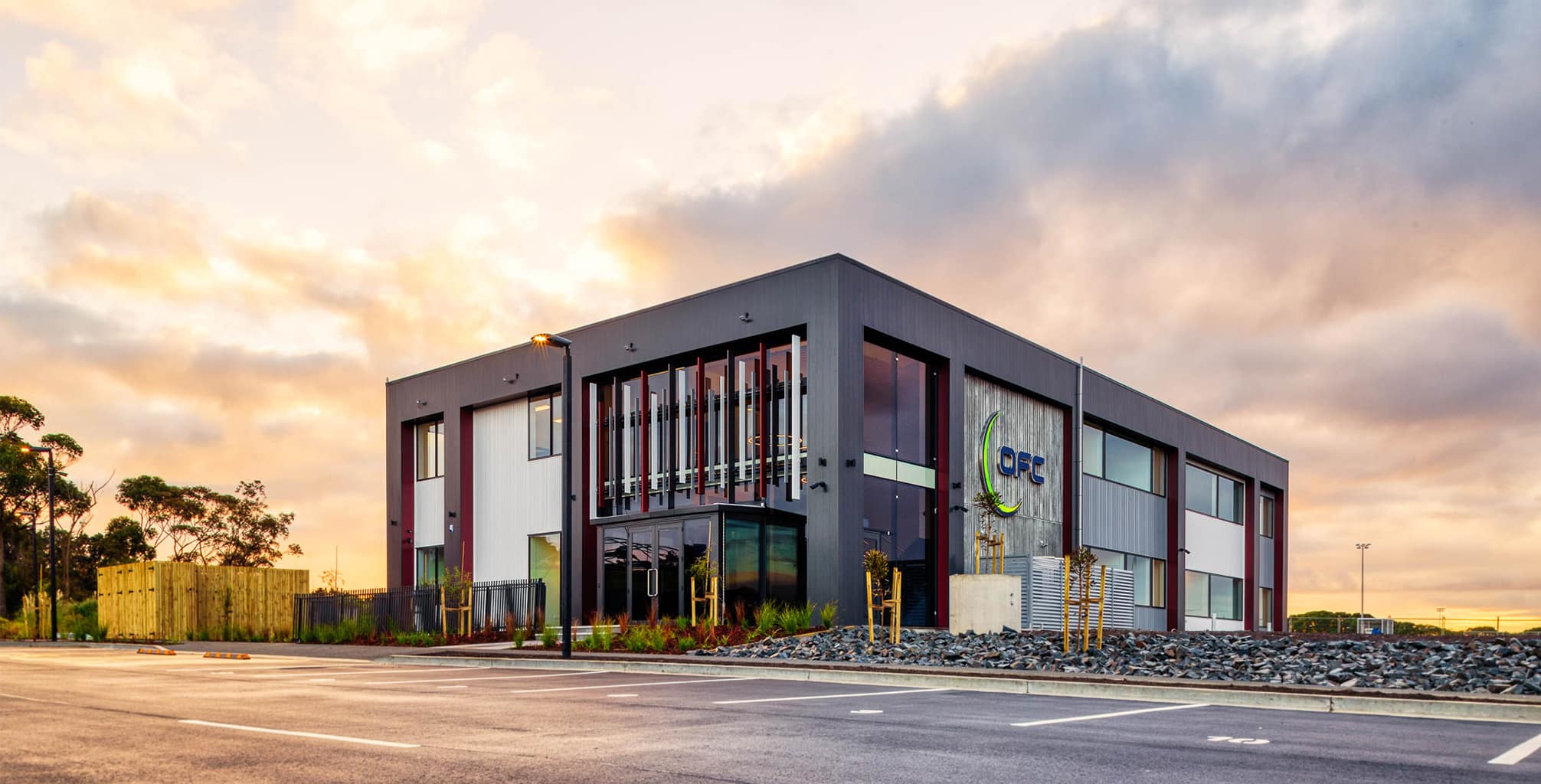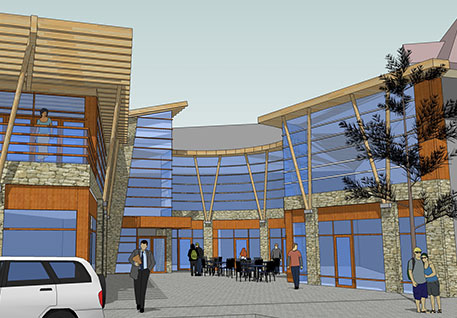Just How Commercial Architects Can Change Your Organization Area With Expert Layout Services
Commercial architects play an important function in improving organization atmospheres. Their knowledge in layout can greatly improve both capability and appearances. By developing areas that show a brand name's identification, they improve functional effectiveness and employee complete satisfaction. The effect of their work expands past plain appearance. Recognizing the nuances of collaboration and sustainability can result in transformative results. What certain aspects make these improvements effective?
Understanding the Duty of Commercial Architects
Commercial architects play a vital function fit service settings that are both practical and aesthetically pleasing. They focus on making rooms customized to the specific needs of organizations, ensuring that every square foot is used effectively. These professionals integrate aspects such as spatial format, lighting, and products to improve efficiency and staff member health. By collaborating with clients, business architects collect insights into functional demands and brand identification, converting these into ingenious designs.Additionally, they browse complicated building regulations and zoning legislations, making sure conformity while making the most of layout possibility. Their knowledge extends to sustainability methods, promoting power performance and ecologically pleasant materials in their projects. Through their innovative vision and technical knowledge, commercial architects not only develop appealing areas but likewise foster settings that advertise collaboration and growth. Eventually, their payments significantly influence the total success and picture of a service.
Advantages of Specialist Layout Solutions

Tailoring Rooms to Your Brand Identification
Tailoring spaces to a brand name's identity is essential for sharing its core worths and goal. Commercial architects play a crucial role in improving an organization's aesthetic identification through thoughtful style choices. By lining up architectural components with brand name concepts, companies can produce environments that resonate with customers and staff members alike.
Reflecting Brand Worths
How can a properly designed room embody a business's core values? Commercial architects play a vital role in forming atmospheres that reverberate with a brand name's identification. By integrating components such as shade plans, materials, and formats, they create areas that reflect the significance of the company. A technology firm may opt for open layouts and modern-day furnishings to convey advancement and cooperation, while a luxury brand may choose stylish surfaces and intimate spaces to stimulate exclusivity and sophistication. Thoughtful layout not just boosts performance yet also promotes a strong connection between employees, customers, and the brand name. Inevitably, a well-crafted setting works as a concrete representation of a company's objective and vision, enhancing its values at every touchpoint.
Enhancing Visual Identification
What components can effectively raise a brand's aesthetic identification within a business room? Commercial architects play an essential function in incorporating style attributes that reverberate with a firm's values. Shade schemes, typography, and products can be purposefully picked to show brand name values while ensuring aesthetic charm. Additionally, including logo designs and brand name imagery into the style can create a natural aesthetic narrative. Illumination style can better enhance the environment, directing consumer assumptions and experiences (commercial architects). Design and furniture selections ought to straighten with the brand's character, whether it's modern-day, traditional, or ingenious. Inevitably, a properly designed industrial area not only draws in customers yet likewise strengthens brand name recognition, developing a long lasting impact that fosters loyalty and engagement
Enhancing Capability and Efficiency
Enhancing performance and efficiency in industrial areas entails optimizing area use and developing operations that streamline operations. Architects focus on developing designs that reduce lost space while assisting in smooth modifications between tasks. This strategy not just boosts efficiency however additionally adds to an extra cohesive functioning atmosphere.
Optimizing Room Utilization
Reliable space usage is a critical consider industrial architecture, where the layout needs to stabilize looks with functionality (commercial architects). Architects employ numerous techniques to take full advantage of offered square video while making sure that each location offers a distinctive purpose. By analyzing workflow, web traffic patterns, Find Out More and user requirements, architects can develop layouts that improve both worker productivity and client experience. Multi-functional areas, adaptable furnishings arrangements, and maximized storage space remedies are crucial elements in achieving this objective. Additionally, integrating natural light and open rooms fosters a much more welcoming ambience, additional boosting the utility of the atmosphere. Eventually, reliable room application not just boosts operational performance however likewise adds positively to the total brand name photo, making it a crucial factor to consider in commercial layout
Streamlined Process Design
Exactly how can a well-designed process transform a business room into a hub of productivity? Structured operations layout concentrates on enhancing the physical format and operational procedures within an organization atmosphere. By purposefully organizing workstations, meeting areas, and resources, architects can remove unneeded motion and boost partnership. This thoughtful design decreases distractions and helps with communication, enabling employees to concentrate on their jobs more effectively. On top of that, incorporating modern technology right into the process can additionally automate procedures, lowering time invested on routine tasks. Therefore, services experience boosted employee spirits and increased output, developing a vibrant atmosphere that fosters innovation. Eventually, investing in structured process style not just improves functionality yet also positions a business room for sustainable growth and success.
Promoting Collaboration Via Style
Modern-day work areas frequently focus on specific efficiency, the style of commercial rooms progressively emphasizes collaboration as an essential motorist of technology and group cohesion. Architects play a crucial duty in creating atmospheres that promote interaction amongst staff members. Open up formats, multifunctional rooms, and purposefully positioned common areas motivate spontaneous conversations and conceptualizing sessions.Incorporating elements such as movable furniture and versatile meeting spaces allows teams to reconfigure areas based upon their joint article needs. In addition, integrating innovation, like interactive whiteboards and video clip conferencing tools, enhances the capacity to connect efficiently, no matter of location.Natural light and biophilic design aspects additionally add to an extra inviting environment, promoting convenience and wellness, which are essential for effective teamwork. By concentrating on these facets, industrial architects can develop vibrant settings that not just enhance partnership however likewise drive general service success.
Lasting Design Practices in Commercial Design

Case Studies: Successful Transformations by Commercial Architects
The implementation of sustainable design practices has not only improved the technique to business architecture but has actually also resulted in remarkable makeovers in different company areas. One significant case is the redesign of a tech company's head office, where architects incorporated natural light and eco-friendly walls, leading to boosted worker wellness and performance. This transformation reduced power prices by 30% and boosted the firm's public image.In another circumstances, a retail shop undertook a total overhaul, making use of recovered materials and energy-efficient systems. This not just attracted eco-conscious consumers but additionally boosted foot traffic by 25%. A 3rd situation entailed a corporate workplace that welcomed an open-plan format with flexible work areas, fostering partnership amongst teams. The architects' focus on developing a dynamic and adaptable atmosphere considerably enhanced employee contentment. These study exhibit how industrial architects can develop impactful areas that align with service goals and sustainability efforts.
Frequently Asked Questions
Just How Much Do Commercial Style Provider Usually Cost?
The expense of industrial style solutions differs extensively, typically ranging from $100 to $250 per hour. Variables affecting pricing consist of project intricacy, place, and the designer's experience, making it essential for services to acquire comprehensive quotes.
What Kinds Of Organizations Profit Many From Commercial Architects?
Different businesses, including retail, friendliness, and business workplaces, considerably gain from commercial architects. These experts improve capability, appearances, and brand name identification, ensuring spaces are maximized for customer interaction and employee productivity, ultimately cultivating service growth.
How much time Does an Industrial Style Job Usually Take?
The timeline for a business layout project typically ranges from a number of weeks to numerous months. Factors affecting period consist of project intricacy, regulatory authorizations, and collaboration amongst stakeholders, every one of which can impact overall conclusion time.
Can I Employ a Commercial Designer for Remodellings Only?
Yes, hiring a commercial designer for improvements is viable. Many architects specialize in renovation jobs, offering competence in enhancing existing areas while adhering to policies and improving capability, appearances, and overall worth of business setting.
What Qualifications Should I Search for in a Commercial Designer?

Comments on “What Sets commercial architects Different From Other Types of Designers?”